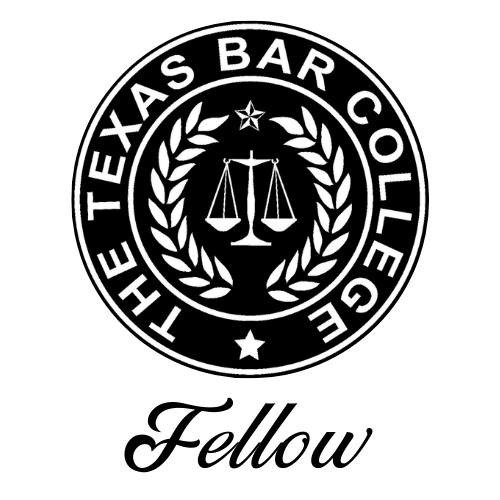


For noncitizens, facing deportation & removal from the United States is devastating and frightening. Deportation can break up families and shatter dreams. However, if you or a family member is at risk for removal from our country, it is important not to give up hope — there are avenues of relief available. While stopping deportation can be an uphill battle, with the right attorney on your side, it is possible.
At the Tausk Law Firm, we understand the seriousness of deportation & removal for our clients and their family members. Our lawyers have made it their mission to fight for the rights of those who might not otherwise have a voice in the immigration system. Clients who come to our law firm may face deportation for a number of reasons including criminal accusations, entering the country illegally, entering the country with fake documents or overstaying a visa. Regardless of your reason, our legal team will take the time to understand your story. Based on our comprehensive knowledge of immigration laws, we will advise you on the best method to help you stay in the country.
Possible removal defenses we can look at include:
Do you have to go before an immigration judge? Do you already have an order to deport? We have many years experience in this area. Some things to think about are as follows:
Cancellation of removal is a proceeding that may be used to suspend deportation of a noncitizen and adjust his or her status to that of a permanent resident. Eligibility depends on a number of factors, and the noncitizen must show that he or she is of good moral character, has been continuously present in the U.S. for 10 years and can show extreme and exceptionally unusual hardship to a qualifying relative.
Depending on what type of crime you were convicted of and when you were convicted, you may be eligible for cancellation of removal for legal permanent residents. Prior to the offense, to qualify one would need to have been a legal permanent resident for five years and physically present in status for seven years and the offense cannot be an aggravated felony.
212(c) — is similar to a cancellation of removal for legal permanent residents in that if you were convicted of a crime prior to April 1996 and were a legal permanent resident for seven years and have been rehabilitated, you may be eligible for 212(c) relief.
Voluntary departure occurs when U.S. officials permit removal of noncitizens to depart voluntarily from the U.S. at their own expense in lieu of facing removal proceedings. Voluntary departure may be granted after the conclusion of or during removal proceedings. An immigration judge may only grant voluntary departure during removal proceedings if the noncitizen admits removability. Not all noncitizens are eligible for voluntary departure; certain criminal convictions and previously permitted voluntary departures may render you ineligible for voluntary departure. Please contact us for an appointment.
Noncitizens are subject to expedited removal when they are deemed inadmissible when they attempt to enter the U.S. Unless they have a credible claim to asylum, they may be removed without a hearing. Individuals that are charged with inadmissibility have the burden of proving their entitlement to admission. Expedited removal decisions may only be challenged in habeas corpus proceedings. Please contact us for an appointment.
This procedure allows the deportation of a noncitizen without a hearing before an immigration judge. Noncitizens who sign stipulated orders of removal waive their rights to hearings and agree to have a removal order entered against them, regardless of whether they are eligible to remain in the United States.
Noncitizens physically present in the U.S. or at its borders or ports of entry may apply for asylum if they fall within the definition of refugee. The INA § 208(b)(1) defines a refugee as “any person who is outside any country of such person’s nationality or … any country in which such person last habitually resided, and who is unable or unwilling to return to, and is unable or unwilling to avail himself or herself of the protection of that country because of persecution or a well-founded fear of persecution on account of race, religion, nationality, membership in a particular social group or political opinion.” In order to qualify for asylum, you must apply within one year of being in the United States. People with certain types of crimes do not qualify for asylum. Asylum is one of the most difficult forms of relief to prove.
Withholding of removal is similar to asylum, however, if for some reason one does not qualify for asylum, you may qualify for withholding of removal. Withholding has a higher burden to prove.
The Convention Against Torture provides that no country will “expel, return or extradite” a person to another country if there are “substantial grounds for believing that he or she would be in danger of being subjected to torture” if removed. This regulation provides a new form of withholding of removal and may permit noncitizens to remain in the U.S. without showing that they will face torture on account of race, religion, nationality, membership in a particular social group or political opinion. To apply for this relief, noncitizens must file an asylum application and indicate that they fear being subjected to torture in their home country.
If you are not a citizen of the United States and have been accused of committing a crime, you are at risk for deportation. Even permanent residents or green card holders can face removal if convicted. In this situation, the benefit of working with our law firm comes from our dual focus on immigration law and criminal defense. We understand the complexity of both areas of law as well as the intersection of the two. Learn more about our criminal defense services.
If a family member has been picked up by the U.S. Customs and Border Protection, are currently on an ICE hold or are facing removal from the U.S., contact our Houston immigration lawyers immediately.


Our attorneys are joined by Kristin Tausk,
firm administrator and paralegal.

For noncitizens, facing deportation & removal from the United States is devastating and frightening. Deportation can break up families and shatter dreams. However, if you or a family member is at risk for removal from our country, it is important not to give up hope — there are avenues of relief available. While stopping deportation can be an uphill battle, with the right attorney on your side, it is possible.
At the Tausk Law Firm, we understand the seriousness of deportation & removal for our clients and their family members. Our lawyers have made it their mission to fight for the rights of those who might not otherwise have a voice in the immigration system. Clients who come to our law firm may face deportation for a number of reasons including criminal accusations, entering the country illegally, entering the country with fake documents or overstaying a visa. Regardless of your reason, our legal team will take the time to understand your story. Based on our comprehensive knowledge of immigration laws, we will advise you on the best method to help you stay in the country.
Possible removal defenses we can look at include:
Do you have to go before an immigration judge? Do you already have an order to deport? We have many years experience in this area. Some things to think about are as follows:
Cancellation of removal is a proceeding that may be used to suspend deportation of a noncitizen and adjust his or her status to that of a permanent resident. Eligibility depends on a number of factors, and the noncitizen must show that he or she is of good moral character, has been continuously present in the U.S. for 10 years and can show extreme and exceptionally unusual hardship to a qualifying relative.
Depending on what type of crime you were convicted of and when you were convicted, you may be eligible for cancellation of removal for legal permanent residents. Prior to the offense, to qualify one would need to have been a legal permanent resident for five years and physically present in status for seven years and the offense cannot be an aggravated felony.
212(c) — is similar to a cancellation of removal for legal permanent residents in that if you were convicted of a crime prior to April 1996 and were a legal permanent resident for seven years and have been rehabilitated, you may be eligible for 212(c) relief.
Voluntary departure occurs when U.S. officials permit removal of noncitizens to depart voluntarily from the U.S. at their own expense in lieu of facing removal proceedings. Voluntary departure may be granted after the conclusion of or during removal proceedings. An immigration judge may only grant voluntary departure during removal proceedings if the noncitizen admits removability. Not all noncitizens are eligible for voluntary departure; certain criminal convictions and previously permitted voluntary departures may render you ineligible for voluntary departure. Please contact us for an appointment.
Noncitizens are subject to expedited removal when they are deemed inadmissible when they attempt to enter the U.S. Unless they have a credible claim to asylum, they may be removed without a hearing. Individuals that are charged with inadmissibility have the burden of proving their entitlement to admission. Expedited removal decisions may only be challenged in habeas corpus proceedings. Please contact us for an appointment.
This procedure allows the deportation of a noncitizen without a hearing before an immigration judge. Noncitizens who sign stipulated orders of removal waive their rights to hearings and agree to have a removal order entered against them, regardless of whether they are eligible to remain in the United States.
Noncitizens physically present in the U.S. or at its borders or ports of entry may apply for asylum if they fall within the definition of refugee. The INA § 208(b)(1) defines a refugee as “any person who is outside any country of such person’s nationality or … any country in which such person last habitually resided, and who is unable or unwilling to return to, and is unable or unwilling to avail himself or herself of the protection of that country because of persecution or a well-founded fear of persecution on account of race, religion, nationality, membership in a particular social group or political opinion.” In order to qualify for asylum, you must apply within one year of being in the United States. People with certain types of crimes do not qualify for asylum. Asylum is one of the most difficult forms of relief to prove.
Withholding of removal is similar to asylum, however, if for some reason one does not qualify for asylum, you may qualify for withholding of removal. Withholding has a higher burden to prove.
The Convention Against Torture provides that no country will “expel, return or extradite” a person to another country if there are “substantial grounds for believing that he or she would be in danger of being subjected to torture” if removed. This regulation provides a new form of withholding of removal and may permit noncitizens to remain in the U.S. without showing that they will face torture on account of race, religion, nationality, membership in a particular social group or political opinion. To apply for this relief, noncitizens must file an asylum application and indicate that they fear being subjected to torture in their home country.
If you are not a citizen of the United States and have been accused of committing a crime, you are at risk for deportation. Even permanent residents or green card holders can face removal if convicted. In this situation, the benefit of working with our law firm comes from our dual focus on immigration law and criminal defense. We understand the complexity of both areas of law as well as the intersection of the two. Learn more about our criminal defense services.
If a family member has been picked up by the U.S. Customs and Border Protection, are currently on an ICE hold or are facing removal from the U.S., contact our Houston immigration lawyers immediately.

Gene has vast experience in criminal appeals and is very familiar with the overall process. It's is critical for a client to select an attorney that has worked many times with these types of cases.

Our firm is committed to protecting the rights of those from the business community suspected of fraud. Penalties can be very severe so these charges must be taken seriously and vigorously defended.

Employers can face severe penalties for not having proper I-9 documentation for workers. With recent policy changes it is more critical than ever that you are prepared to defend your business when going through an audit.